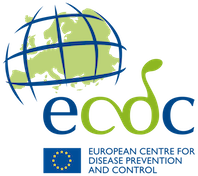The training is designed to strengthen capacity in EU/EEA countries for the prevention and control of healthcare-associated infections (HAIs) due to multidrug-resistant organisms (MDROs) in acute healthcare settings and to promote the broad implementation of appropriate measures in the EU/EEA. The course will be delivered in a synchronous format with pre-course activities.
Dates and duration: 5, 8, 12 and 15 November 2024 (half-days)
Audience: This training is designed for healthcare professionals working at national or local level in EU/EEA countries with current or future responsibility for the prevention and control of healthcare-associated infections (HAIs) and multidrug-resistant organisms (MDROs). This includes infection control/hospital hygiene practitioners, hospital physicians/specialist physicians, hospital epidemiologists, clinical microbiologists, public health microbiologists, antibiotic prescribers, and professionals involved in antimicrobial stewardship. The course is tailored to mid-career professionals involved in infection control programmes to prevent HAIs at the hospital level. Ideally, participants should be active in the field, as they are expected to share their experiences during the course.
Objectives: After completing this training, the participants should be able to:
- Identify the challenges related to antibiotic prescription, the burden of anti-microbial resistance (AMR) and the principles of antibiotic stewardship.
- Differentiate between guidelines, formularies, and policies.
- Describe measurement of drug usage and the prescribing indicators in relation to structure, process, and outcomes.
- Identify drug usage over time and interpret prescribing surveillance data.
- Recognise the elements and performance measurement for an antimicrobial stewardship program (AMS).
Infection Prevention and Control (IPC)
- Consolidate advanced knowledge of mechanisms in relation to the emergence and spread of multidrug resistant organisms (MDRO) in hospital settings and the epidemiological local, national and international consequences.
- Review the evidence base for local policies and protocols, especially preventative and control strategies for MDRO Gram negatives.
- Evaluate the effectiveness of different interventions in minimising the transmission of MDROs.
- Appraise the role of the laboratory in antimicrobial resistance detection, surveillance, and outbreak management.
- Utilise behavioural science to understand antibiotic prescribing (AP) and infection prevention control (IPC) practices relevant to MDRO control.
- Recognise how AP/IPC practices may be influenced by healthcare workers' attitudes arising from their human nature, different personalities, and culture.
Application to practice
- Identify interventions to improve antibiotic prescribing (AP) practices for hospitalised patients and measure intervention effect, barriers, and possible solutions.
- Apply the principles of infection prevention and control (IPC) practices in relation to multidrug resistant organisms (MDRO) in a hospital setting.
- Illustrate and identify interventional opportunities in AP/IPC to achieve behavioural changes and implementation of best practices.
- Critically review and apply in practice the strategies and mechanisms to manage and prevent inappropriate antibiotic prescribing.
- Plan strategies to implement behaviour change interventions in antibiotic stewardship and infection prevention and control.
- Appraise the emerging field of design and design thinking for behaviour change in a public health context, with an emphasis on behaviour change intervention design.
- Try out and implement the main design thinking tools that can support intervention design in their local context.
- Critically review the dissemination of planned interventions and their application to practice.
Participation: This training is not open for self-enrolment. Participation is through invitation only.
